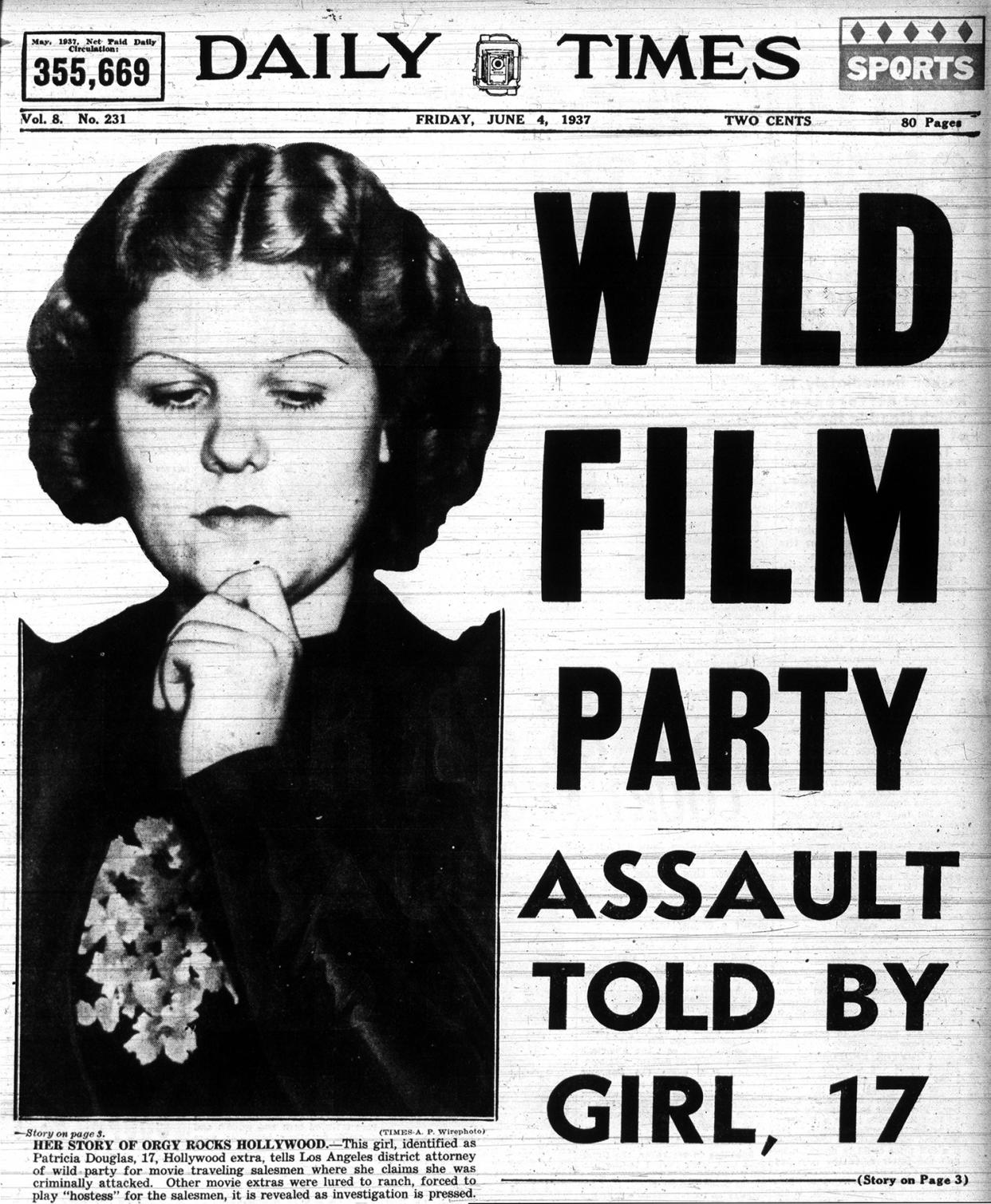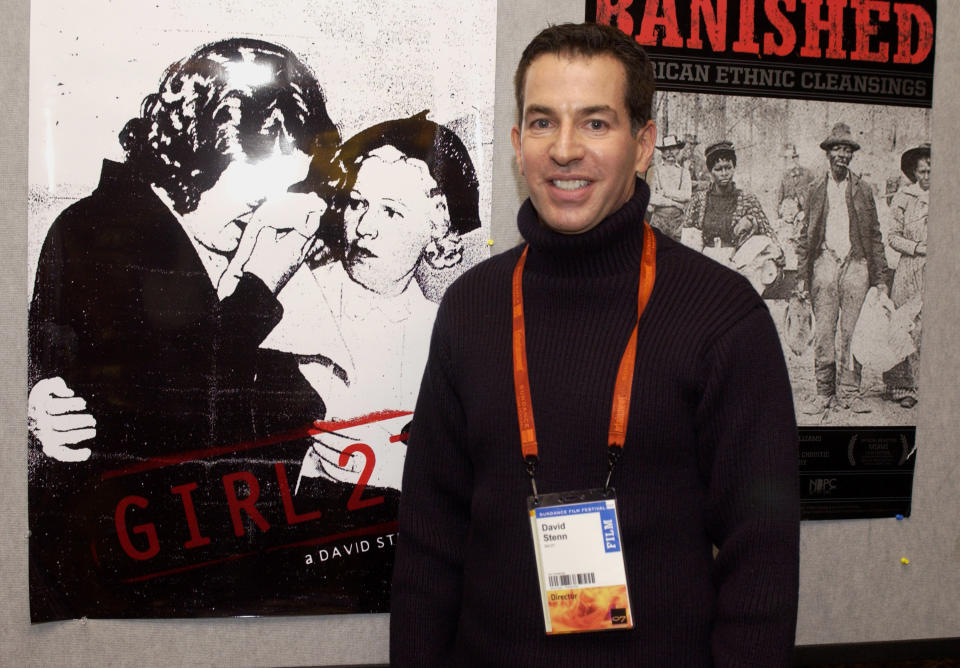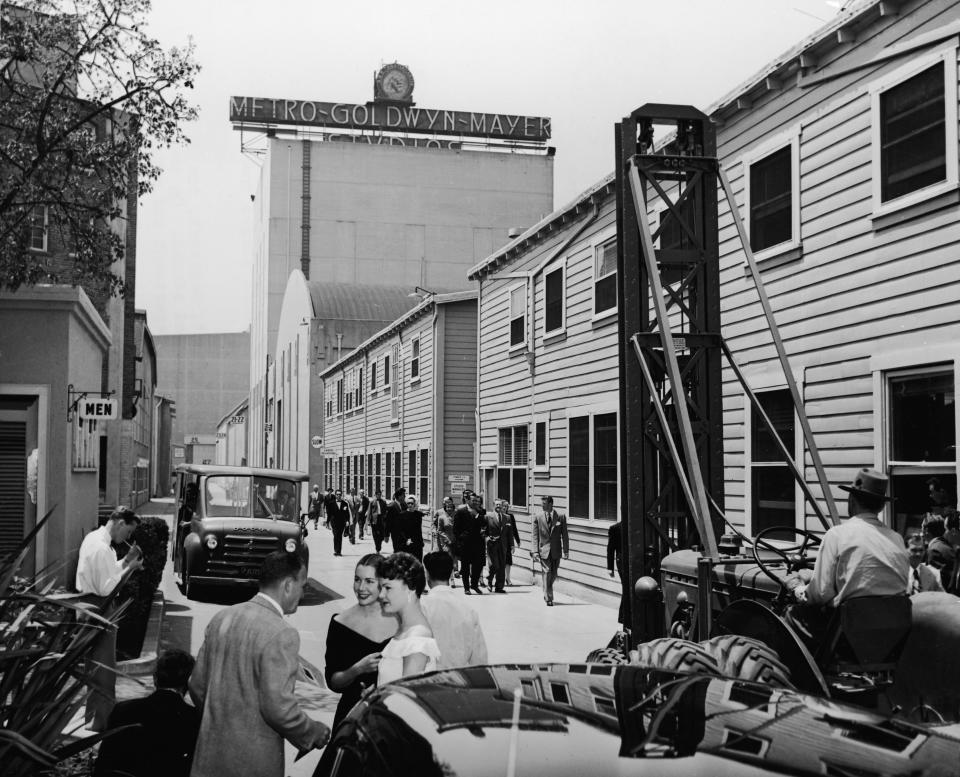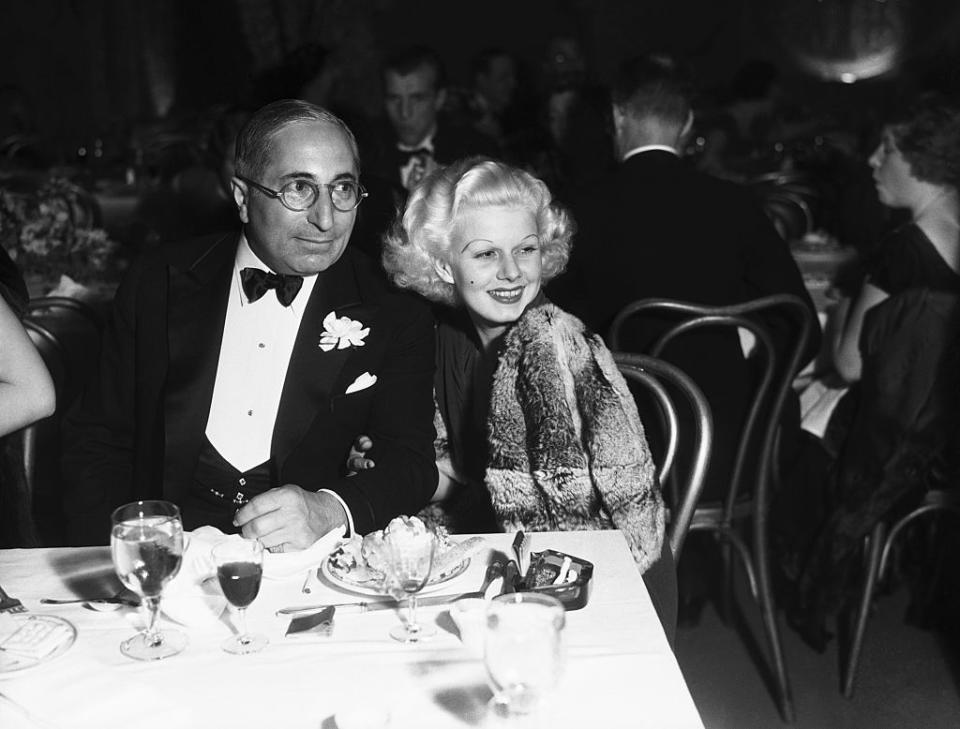Remembering Patricia Douglas, the first woman to call out Hollywood for sexual assault

The sheer number of women who have alleged sexual misconduct, from harassment to rape, against once-powerful producer Harvey Weinstein is shocking. In voicing their support for the victims, many celebrities have indicated that they had had an inkling something was going on, but they hadn’t spoken out, frequently saying that they had remained silent because the offending action hadn’t happened to them or they didn’t want their career to be affected. In other words, over the course of decades, the industry has seemingly accepted such misbehavior as part of show business.
Actress Zoe Kazan made a powerful reference to this in a string of posts on Twitter: “In all the discussion re: Weinstein, not seeing enough about *how* & *why* a predator can fly under the radar in an industry for so long. Sexual harassment being rampant in our industry — being the undertow, the room tone — provides camouflage for the worst kinds of behavior. He may be a monster but he’s not a ‘lone wolf.’ There’s a whole system that enables, tacitly endorses & disguises his behavior as acceptable. I hope holding him accountable brings about change. But that only happens if we don’t act like he’s the exception, when he’s an exemplar.”
In all the discussion re: Weinstein, not seeing enough about *how* & *why* a predator can fly under the radar in an industry for so long.
— zoe kazan (@zoeinthecities) October 9, 2017
In fact, the woman who seems to have been the first to publicly call out the studios, Patricia Douglas, did so in 1937. Douglas wasn’t a famous actress; her IMDb page lists only two uncredited roles as a dancer. But she’s noteworthy because of her case, which writer David Stenn documented in the 2007 film Girl 27.
“I think she wouldn’t be surprised about the allegations [coming out today], and I think she would be modest about being the pioneer in this field,” Stenn tells Yahoo Entertainment. “I don’t think she ever saw herself as special or unique, and she was both.”
The story goes like this: 20-year-old Douglas, who treated acting like a hobby, went to an MGM casting call that she thought was for background work in a movie, according to Hollywood history podcast You Must Remember This. The 120 women who showed up for the “audition” were fancied up and given a skimpy outfit, then taken to a boozy party that the studio was throwing for its executives and 300 salesman to celebrate a banner year. They were the hired eye candy, although they reportedly weren’t told anything.
“They never mentioned it was for a party. Ever. I wouldn’t have gone!” Douglas, who died in November 2003, recalled to Stenn in an April 2003 piece for Vanity Fair. “Oh God, oh God, I wouldn’t have gone.”

In addition to the women, who were paid $7.50 for their work, the party featured 500 cases of Scotch and champagne. Stenn cited testimony from a waiter at the party saying that the men were drunk and rowdy. The waiter said that he saw “girls get up and move from the tables because the men were attempting to molest them.”
Douglas told Stenn that David Ross, from the Chicago office, had tried to “cop a feel” on her during a dance. She attempted to escape into the restroom, but when she came out, she said, Ross and an accomplice held her down and poured liquor into her mouth. She managed to get away eventually, but she said he found her again and threw her into a car, where he raped her.
“When Ross was finished, Douglas stumbled out of the car screaming,” You Must Remember This host Karina Longworth noted in a 2015 episode on MGM. “[Douglas] was taken to the Culver City Hospital, which, like the Culver City Police Department, was essentially a satellite of MGM. The doctor who examined Douglas said he could find no evidence of intercourse, and Douglas was taken home in an MGM car.”

Douglas recalled the trip to the hospital to Stenn in the 2003 story.
“I was given a cold-water douche,” she said. “Then the doctor examined me. It’s no surprise he didn’t find anything. The douche had removed all evidence.”
She slept for 14 hours. “I was so sore down there, and my face was still swollen,” Douglas said. She didn’t go to a another doctor, she explained, because she “would’ve been too embarrassed. Someone would’ve seen me naked.”
Instead, the actress filed a complaint against Ross with the Los Angeles County district attorney, who happened to have a close relationship with MGM studio head Louis B. Mayer. She also tried telling her story to the media, but they would only name Douglas — the Los Angeles Examiner published her address — and not the name of the powerful studio, although there was a statement. “We have read with astonishment the alleged charges of the girl,” the unnamed studio said. “It is difficult to make any real comment as to a situation which appears so impossible and as to which we know nothing.”

The late screenwriter B.P. Schulberg, whose father was once a Mayer partner, told Stenn, “The power MGM had is unimaginable today. They owned everyone — the D.A., the L.A.P.D. They ran this place.”
MGM fixer Eddie Mannix did his best to quiet Douglas. It was his job to maintain the studio’s wholesome, family-friendly reputation, and he reportedly looked into Douglas’s background in an unsuccessful attempt to find something that would discredit her. He even urged other women hired for the party to say that Douglas had drunk too much, although she didn’t drink at all. The smear campaign included trying to get Douglas’s urologist to say that she’d had a “genital urinary infection” — a euphemism for gonorrhea, Stenn wrote.
At some point, the district attorney did show Douglas photos of men from the party, and she was able to identify Ross. He denied the charges, but the publicity of the case meant that, as Stenn wrote, the DA was “left with no choice but to convene a grand jury.” Ross clearly had the advantage, however; he was repped by Mayer’s high-powered personal attorney, and because of pressure from the studio, only two of the dancers at the party testified on her behalf. Stenn reported that he had contacted the family of one of the people who had testified against Douglas on June 16, 1937, who said their late relative had been offered any job he wanted at the studio in exchange for silence. Not surprisingly, the hearing did not go the way Douglas wanted.
Douglas then filed a civil suit against several MGM execs and “John Doe One To Fifty” in Los Angeles County, Stenn wrote, seeking $500,000 for their “unlawful conspiracy to defile, debauch, and seduce” the women at the party “for the immoral and sensual gratification of male guests.” The studio reportedly kept the case out of court for a while, and then a judge dismissed it. Douglas tried filing a lawsuit in federal court, but her lawyer didn’t show up on her court date — suspected to be for political reasons — and neither did the bigwigs from MGM, and that case was also dismissed. Still, it was significant, because the case was “an apparent legal first,” Stenn wrote, in that “a female plaintiff made rape a federal case, based on its violation of her civil rights.”
When Stenn wrote the Vanity Fair story, Douglas was 86. He described her as “a great-grandmother, housebound by glaucoma, emphysema, and fear.” And she was still very upset about what had happened to her, so much so that she never talked about it with anyone, not even her family.
“It ruined my life. It absolutely ruined my life,” Douglas told Stenn. “They put me through such misery. It took away all my confidence.”
For a while after the ordeal, Douglas said, she “went from ‘Little Miss Innocent’ to a tramp. I did it to demean myself. I was worthless, a ‘fallen woman.’”
She was professionally ruined, and what happened in her personal life was worse.
“I’ve never been in love,” said Douglas, who married three times in five years and relocated first to Bakersfield, Calif., and then to Las Vegas. “And I’ve never had an orgasm. I was frigid.” She described herself as “a lousy mother” and “a walking zombie who glided through life.”
When Douglas spoke to Stenn, she told him that she was willing to go public (again) all those years later because of her age.
“When I die, the truth dies with me, and that means those bastards win,” she said.
Read more from Yahoo Entertainment:

